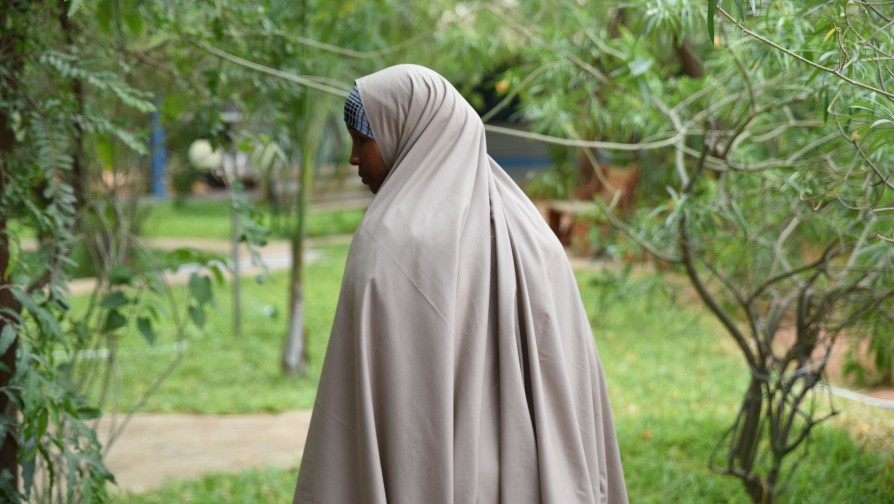‘There is very little a young woman like me can do to fight FGM alone but I know there is hope.’
DADAAB Refugee Camp, Kenya – Rukia Hussein, an advocate against Female Genital Mutilation (FGM) lives in Ifo refugee camp in Dadaab complex. Rukia arrived in Dadaab in 1992 when she was only 5 years old.
As a youth advocate, Rukia recently took part in the Global Refugee Youth Consultations that were held in Geneva, Switzerland in June 2016 bringing together refugee youth from all over the world. The forum gave the youth a platform to hold discussions with the United Nations, donor community, the civil society and Government representatives.
Rukia facilitated a session on Sexual and Gender Based Violence and led discussions on Female Genital Mutilation (FGM) in the context of Dadaab. Her courage to discuss the topic openly was met with admiration from all participants.
“Girls and women in refugee camps are also victims of harmful traditional practices. There is very little a young woman like me can do to fight FGM alone but I know there is hope; thanks to the agencies that work in Dadaab. That is why I remain passionate about this campaign.” She said.
“There is very little a young woman like me can do to fight FGM alone but I know there is hope.”
Female genital mutilation (FGM) has long been regarded as a human rights abuse against women and girls under international law, but it continues to be practised. Carried out for traditional, cultural or religious reasons, FGM can cause severe health problems and even lead to death. Young girls are particularly vulnerable and FGM disproportionately affects the female child.
Rukia once taught at a local school after her high school studies. She later took up college studies in Cooperative Management but her zeal to fight FGM was not deterred. Her passion for community service led her to take up a voluntary job as a hygiene promoter in Dadaab. She later thought that she would make more impact as an anti-FGM crusader and that is why she took up a job as a GBV community worker in Dadaab.
In Geneva, Rukia gave recommendations on the strategies that can work to completely eradicate FGM. “Religious leaders should be involved in this fight against FGM because of their status in the community,” she said. “This is a strategy which we are already employing in Dadaab and so far, it has proved to have an impact.”

“With the support of all stakeholders, FGM will be completely eradicated.” Said Rukia, who lives in Ifo, one of the 5 Dadaab Camps. UNHCR/M.Ndubi
Rukia was among 28 humanitarian workers who were recently trained by UNHCR on Engagement of Men in Accountable Practices (EMAP). She was provided with tools and skills to successfully promote transformational change and gender equality.
Samuel Kotonya, UNHCR Assistant Protection Officer responsible for the program says that within the few months that EMAP has been in place, it has had a profound impact in providing men with the tools and knowledge to re-think their belief systems and help prevent gender based violence through individual behaviour change.
“The model allows female participants to grasp the opportunity to reflect on their own experiences.” Explains Kotonya. “EMAP intervention can help stop violence before it even begins while also addressing the underlying causes of violence against women and girls.”
In 2015, Rukia and her fellow advocates trained groups of a hundred men who are now transformed and have since become change-makers and allies to the anti-FGM cause. They have rolled out plans through which they intend to train more men and women in 2016.
“With the support of all stakeholders, FGM will be completely eradicated.”
UNHCR uses community-based protection (CBP) to empower communities. “Sometimes we are not able to reach the community immediately. Trained advocates like Rukia respond much faster before we step in,” said Lina Koki, UNHCR Protection Associate (Community-Based Protection). She adds that UNHCR is empowering the community to own the response, prevention and protection by using community-based protection.
Rukia is hopeful that Dadaab will be FGM-free one day. “Rome was not built in a day. With the support of all stakeholders, FGM will be completely eradicated.”
Share on Facebook Share on Twitter